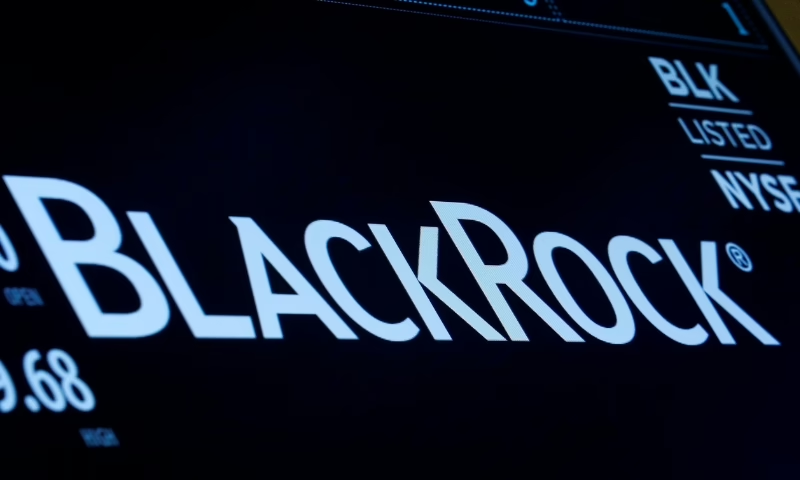Top 10 BTC Holders: Who Owns The Most Bitcoin?
We set out to figure out the top 10 Bitcoin holders – those people and organizations who have amassed the vast amounts of Bitcoin.

Bitcoin (BTC) is the oldest and most well-known cryptocurrency, first launched in January 2009. Over the years, it has gained widespread recognition and has become a major digital asset. Its price has seen significant changes, reaching an all-time high of $108,388 on December 17, 2024.
Bitcoin has a fixed supply cap of 21 million BTC, with less than 2 million still left to be mined. Additionally, an estimated 3 to 4 million BTC are believed to be lost forever, reducing the number of coins in circulation. Because Bitcoin is designed to be decentralized, it is important to understand how BTC is distributed—especially who the largest holders are and how their influence affects the market.
| Rank | Entity/Holder | BTC Held | Approximate Value (USD) |
| 1 | Satoshi Nakamoto | 1,096,354 BTC | $77 billion |
| 2 | Binance | 618,653 BTC | $43.5 billion |
| 3 | BlackRock iShare Bitcoin Trust | 567,991 BTC | $39.9 billion |
| 4 | MicroStrategy | 499,226 BTC | $35 billion |
| 5 | Coinbase | 267,000 BTC | $18.8 billion |
| 6 | U.S Government | 200,000 BTC | $14.2 billion |
| 7 | Fidelity’s FBTC Fund | 195,208 BTC | $13.8 billion |
| 8 | Grayscale Bitcoin Trust | 194,621 BTC | $13.7 billion |
| 9 | Wrapped Bitcoin (WBTC) | 128,179 BTC | $9.1 billion |
| 10 | MARA Holdings | 46, 374 BTC | $3.3 billion |
1. Satoshi Nakamoto – 1,096,354 BTC (~$77 billion)
Satoshi Nakamoto, the creator of Bitcoin, is estimated to own between 968,452 and 1,096,354 BTC. The higher estimate comes from recent research by Arkham Intelligence, which identified additional addresses linked to Nakamoto using the Patoshi Pattern, a mining pattern that suggests these addresses were mined by Satoshi during Bitcoin’s early days.

2. Binance – 618,653 BTC (~$43.5 billion)
Binance is the largest cryptocurrency exchange by trading volume, primarily holding BTC as user funds in its custodial wallets. The exchange’s infrastructure, including BNB Chain, supports decentralized finance (DeFi) and NFTs. While Binance discloses customer reserves via its Proof of Reserves (PoR) system, it does not publicly share its corporate Bitcoin holdings.
As of early 2025, Binance’s total Bitcoin reserves stood at 622,192 BTC, dropping to 618,653 BTC by February. During January–February 2025, Binance liquidated over 94% of its corporate Bitcoin, reducing its holdings from 46,896 BTC to just 2,747 BTC.
3. BlackRock iShares Bitcoin Trust – 567,991 BTC (~$39.9 billion)
BlackRock, the world’s largest asset manager, has entered the Bitcoin market, marking a shift in how big institutions view cryptocurrencies. Its Bitcoin holdings are managed by Coinbase, giving clients a way to invest in digital assets. In addition, this move shows growing confidence in Bitcoin as a potential safeguard against inflation and economic instability.
Rather than just an experiment, it reflects BlackRock’s strategy to expand investment options. As of March 13, 2025, BlackRock’s iShares Bitcoin Trust (IBIT) holds about 567,922.8 BTC, according to Treasuries.bitbo.io.

4. MicroStrategy – 499,226 BTC (~$35 billion)
Strategy, formerly MicroStrategy, is a business intelligence firm known for its strong support of Bitcoin. Led by executive chairman Michael Saylor, the company adopted Bitcoin as its main treasury asset in 2020, seeing it as a better option than cash. Strategy has steadily increased its holdings, often buying more during market downturns.
As of March 16, 2025, Strategy holds 499,226 BTC, based on recent purchases and SEC filings. This investment has boosted Strategy’s market value and influenced other companies to consider Bitcoin for their reserves.
5. Coinbase – 267,000 BTC (~$18.8 billion)
Coinbase holds a large amount of Bitcoin, including its own assets and those managed for clients, such as institutional investors. Reports on the exact size of its reserves vary, likely due to differences in how custodial assets are counted. However, Coinbase remains a major Bitcoin custodian, with its holdings making up over 12% of all Bitcoin in circulation. As of May 2024, the company Coinbase held around 267,000 BTC.
6. U.S. Government – 200,000 BTC (~$14.2 billion)
The U.S. Government is estimated to hold approximately 200,000 Bitcoin, primarily acquired through criminal and civil asset forfeitures. This amount is part of the newly established Strategic Bitcoin Reserve, which aims to treat Bitcoin as a reserve asset without plans to liquidate it.

7. Fidelity’s FBTC Fund – 195,208 BTC (~$13.8 billion)
Fidelity Investments has established its Wise Origin Bitcoin Fund (FBTC) as a secure and regulated pathway for institutional investors to access Bitcoin. This dedicated fund utilizes Fidelity’s proprietary custody solutions, prioritizing the security and regulatory compliance of its Bitcoin reserves.
By offering institutional clients a trusted avenue for Bitcoin exposure, Fidelity plays a key role in bridging the gap between conventional financial markets and the rising cryptocurrency sector. As of March 17, 2025, FBTC holds 195,208.4 BTC, according to Bitcoin Treasuries website.
8. Grayscale Bitcoin Trust (GBTC) – 194,621 BTC (~$13.7 billion)
The Grayscale Bitcoin Trust (GBTC) provides a way for institutional investors to gain Bitcoin exposure without owning the cryptocurrency directly. Managed by Grayscale Investments, GBTC issues shares backed by Bitcoin, offering a regulated and accessible investment option.
This structure has drawn interest from various institutional investors, such as hedge funds, pension plans, and family offices, helping Bitcoin gain mainstream acceptance. As of March 12, 2025, GBTC holds 194,621.6 BTC, reflecting the growing demand for traditional investment products that include cryptocurrency.
9. Wrapped Bitcoin (WBTC) – 129,170 BTC (~$9.1 billion)
Wrapped Bitcoin (WBTC) connects Bitcoin to the Ethereum ecosystem, allowing Bitcoin to be used in decentralized finance (DeFi) applications. Each WBTC token is backed by an equivalent Bitcoin, ensuring transparency and trust. This innovation expands Bitcoin’s use beyond just a store of value, enabling it to work with Ethereum’s smart contracts.
WBTC’s backing includes around 129,170 BTC, securely held by custodians like BitGo. These reserves are used to mint WBTC tokens on the Ethereum blockchain, letting Bitcoin holders engage in DeFi activities on Ethereum.
10. MARA Holdings – 46,374 BTC (~$3.3 billion)
MARA Holdings, previously Marathon Digital Holdings, is a major Bitcoin mining company in North America. It focuses on generating new Bitcoin through large-scale computing operations, playing a key role in the Bitcoin network’s infrastructure. The company aims to expand its mining operations to maximize Bitcoin accumulation.
As of February 28, 2025, MARA Holdings holds 46,374 BTC, representing the rewards from its mining activities. These holdings reflect the company’s strong position in the Bitcoin ecosystem. Investors closely watch MARA Holdings as an indicator of the health and profitability of the Bitcoin mining industry.
Final Insights
Bitcoin’s distribution reflects a mix of individual, institutional, and government holdings, highlighting its role as both an investment asset and a decentralized currency. With a fixed supply of 21 million BTC and millions already lost, scarcity remains a key factor influencing its value. Large-scale holdings, whether from corporations or funds, can impact market liquidity and price movements.
Moreover, as Bitcoin adoption grows, its ownership landscape continues to evolve, shaping its long-term role in global finance and investment strategies. Understanding these dynamics is crucial for assessing Bitcoin’s future market behavior.







